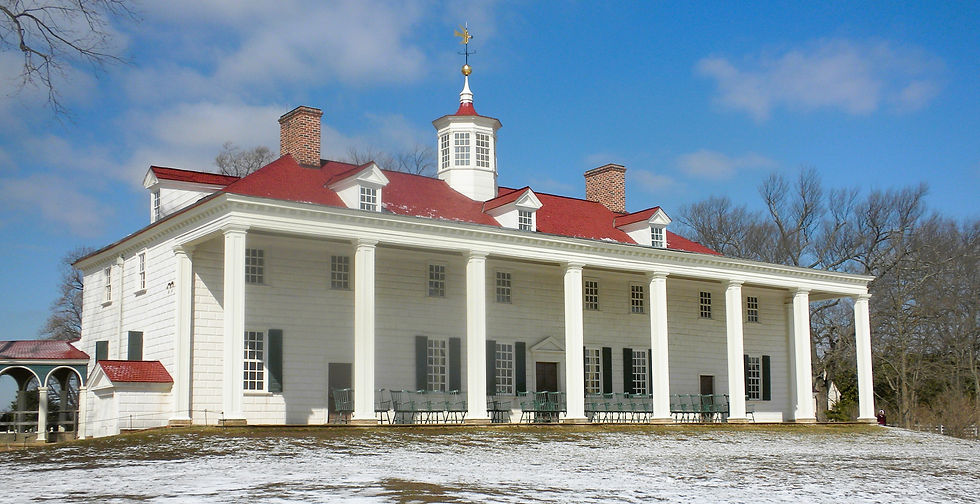Gratitude Friday 04/14/23 - Ruination Day
- Bill Stauffer

- Apr 14, 2023
- 4 min read
“To be alive at all is to have scars.” ― John Steinbeck

For singer songwriter Gilliam Welch, April 14th is known as “Ruination Day.” As she relates, 414 marks the anniversary of three awful, fabled events: the assassination of President Abraham Lincoln in 1865; the Titanic striking an iceberg in 1912 (it sunk in the wee hours of the 15th); and the Black Sunday dust storm of 1935. She actually wrote two songs about it one here and the other here. She reflects on the events of 414 in a way that helps us consider the impact of tragedy and perhaps the opportunity of accounting for ruination in our own lives.
As a history guy, all three of these events have long been on my radar. As a kid, the book A Night to Remember by Walter Lord captured my imagination. A grand vessel. The hubris that went into building an unsinkable ship that was lost at sea on its maiden transatlantic voyage. The ship was built with inferior rivets to save money, which was a major factor in it being lost with 1,517 souls. I guess small things matter, even or perhaps especially in large engineering feats. The narrative of it being unsinkable also led to fewer lifeboats being included in the design to make it look more appealing. Cleaner lines. Form before function that ended in tragedy. Reminders that if we believe our own narratives too strongly and ignore reality it can lead to ruination.
Lincoln was a transformative historical figure depicted as larger than life. A closer examination reveals flaws and blind spots, just like all the rest of us. It also can highlight how only looking at the cliff notes of history leaves us with incomplete and oversimplified versions of events. This can rob us of valuable insights. Perhaps for me, that is the lesson of Lincoln. History shows his views changed over time. He was initially resistant to freeing slaves and the Emancipation was not all encompassing, it essentially served the Union War effort. To his credit, Lincoln did act, and it took courage. It can be particularly difficult for persons in positions of authority to do as there is a certain pressure to sustain inertia, even when the outcome of doing more of the same is devastating. The tragedy of his assassination is most significant because had he lived, he may have lead others and made further progress in the all too brief Reconstruction Era. 414 events robbed our nation through the hatred filled actions of John Wilkes Booth that rose out of the flaw in our very foundation. The loss of Lincoln was a ruination that reverberates to this day for that reason.
The third event of 414 is the Black Sunday dust storm of April 14th, 1935. There is a picture here of the storm in Northern Texas on that day. It was an immense storm that impacted the whole nation. It is one of the events that we learn little about in our era. The Worst Hard Time: The Untold Story of Those Who Survived the Great American Dust Bowl, a book I would recommend for persons interested in learning about the magnitude of destruction that occurred. Of course, another is Steinbecks Grapes of Wrath which was actually banned. The Dust Bowl is a story of boom-and-bust economics and how those who have the least end up being harmed while others more distant reap immense profits. The dust storms are hard to comprehend. Dust choking lungs and blinding people. They are also termed Haboobs and can kill you. The saga is a lesson in how short-term gains far too often can override stewardship processes that benefit us in the long term. There is no such thing as a free lunch, although we keep hoping we can treat our planet like a never-ending ledger to draw from.
So why in the world should I celebrate Ruination Day on this 414 Gratitude Friday? There is a myriad of reasons, the first being that as you reflect on your day today, the historical events related to this date in history puts things in context. When we consider the trials and tribulations of the past, the odds are that no matter how rough things are, it is probably still a banner day using this yardstick.
All three of these events upon closer inspection can remind us that we are all capable of actions that reflect our greatest attributes and our most glaring deficits. The way to increase the likelihood of the former and avoiding the latter often comes down to deep reflection and mindfulness. We can avoid the Iceberg by being humble, slowing down, paying attention to the small things and realizing we are far from unsinkable.
My personal ruination day was the last day I used drugs and alcohol. It was a terrible day in my life. It also sowed a deeper understanding of my own blind spots and hubris. Often, but not always, the seeds to improving our circumstances come out of hard times when we are forced to reconsider our trajectories, motivated by painful consequences. This is why Ruination Day is worthy of celebration. I am personally grateful that I had the opportunity to rise from my own ruination and learn to do and be better. This makes 414 worth highlighting as far as I am concerned.
What are you grateful for today?










Comments